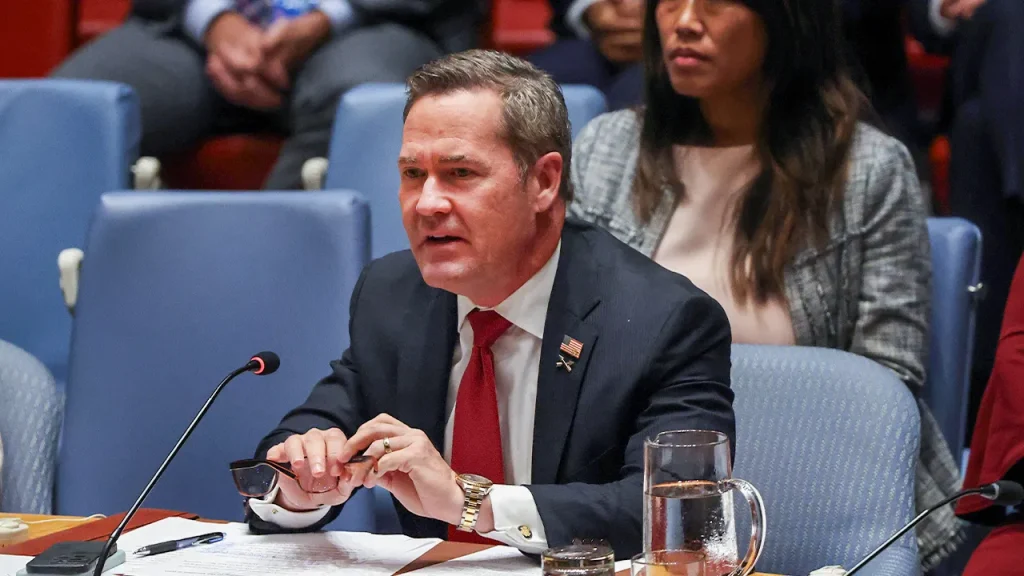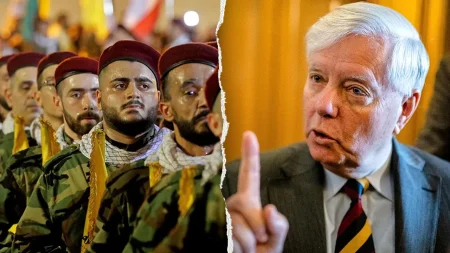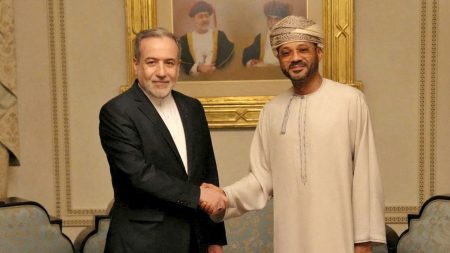Trump’s Gaza Peace Plan: A New Chapter in Middle East Diplomacy
A Fresh Approach to Middle East Peace
U.S. Ambassador to the United Nations Mike Waltz believes President Donald Trump’s new Gaza peace plan could represent a “once-in-a-generation opportunity for Middle East peace.” Speaking candidly with Fox News Digital, Waltz expressed optimism about the plan that Israel has already agreed to adopt. What makes this approach interesting is that despite the administration’s frequent criticism of the United Nations’ actions in Gaza, Trump’s plan still relies on the international body’s assistance. When questioned about this apparent contradiction, Waltz explained that while working alongside the UN in Gaza, the U.S. will “continue to call it out” and “demand reforms” where necessary. This balanced approach acknowledges both the necessity of international cooperation and the need for accountability in humanitarian efforts.
Addressing the Aid Delivery Challenge
A central concern Waltz highlighted is the problematic delivery of humanitarian aid in Gaza. UN statistics reveal a troubling reality: nearly 90% of aid trucks were intercepted by armed groups or desperate crowds between May 19 and August 5. The U.S. has identified Hamas as the primary culprit, with Waltz explaining, “We can’t have a situation where UN agencies—the U.S. pays for about a quarter of their costs—are actually delivering aid in a way that Hamas takes it over.” The terrorist organization has been profiting by selling stolen aid on the black market, effectively exploiting humanitarian efforts for financial gain. Meanwhile, the U.S.- and Israel-backed Gaza Humanitarian Foundation, despite facing criticism from the UN, reported delivering more than 178 million meals since beginning operations in May—a testament to what can be accomplished with proper oversight and management.
A Warrior Diplomat’s Approach
Waltz, who was appointed to his UN role on September 19, just before the international body’s “High-level Week,” brings a unique perspective to diplomacy. As the first Green Beret elected to Congress, he describes his approach through the lens of his military background: “Green Berets are called ‘warrior diplomats.’ We often have a big stick behind us.” This philosophy mirrors Trump’s handling of Iran earlier in the year, where Waltz noted the president gave Iran “opportunity after opportunity to walk away from a weaponized nuclear program” before ultimately taking decisive action. This balanced approach of extending diplomatic opportunities while maintaining readiness for more forceful measures characterizes the administration’s foreign policy stance. Waltz emphasized that Trump has made it clear his goal is to be a peacemaker, though that doesn’t preclude tough action when necessary.
Reforming the United Nations
The ambassador outlined his mission to follow Trump and Secretary of State Marco Rubio’s vision to implement America First policies and “make the UN great again.” Waltz believes the institution has drifted from its founding principles and no longer functions effectively as a global forum where nations can collaboratively resolve issues. A major priority for the U.S. at the UN, according to Waltz, is addressing what he calls “the bloat” that has accumulated over the organization’s 80-year history. “It has gotten too big, too bureaucratic, and therefore less effective,” he explained. While not promising drastic cuts, Waltz made it clear that improving efficiency is a key objective. He pointed to a recent vote on Haiti as an example of effective UN action, where an international gang-suppression force is being deployed to restore order without placing the financial burden solely on the United States. “In line with what the president has demanded, we’re going to share the burden,” Waltz said, noting that Kenya is taking the lead with El Salvador playing a key role.
The Strategic Importance of International Engagement
Despite widespread American skepticism about the United Nations, Waltz made a compelling case for continued U.S. involvement. He argued that it remains essential for world leaders to meet on American soil and for Washington to maintain its seat at the international table. Waltz highlighted a critical but often overlooked aspect of international bodies: their growing influence on the American economy through regulation. “There’s all these international bodies that can directly affect our economy and our way of life that touch aviation and how we fly around the world, space, telecommunications, radio, data,” he explained. Just as the administration fights against excessive regulation domestically, Waltz stressed the importance of preventing “global overregulation” that could hamper American industries. Without active U.S. participation, these regulatory decisions would be made without American input.
Fighting for American Values on the World Stage
Waltz concluded with a passionate defense of U.S. global engagement as crucial to protecting American interests and preventing adversaries from filling any void left by American absence. “We have to stay engaged, I think, to fight for the values that we hold dear. And if anything, this president is a fighter. We’re going to keep fighting for our way of life,” Waltz affirmed. This statement encapsulates the administration’s approach to international relations: principled engagement that prioritizes American interests while recognizing the necessity of global cooperation. As Trump’s Gaza peace plan moves forward, it will test this philosophy in one of the world’s most complex conflict zones. With Waltz bringing his unique “warrior diplomat” perspective to the United Nations, the administration is positioning itself to pursue peace through strength while demanding greater accountability from international institutions.













